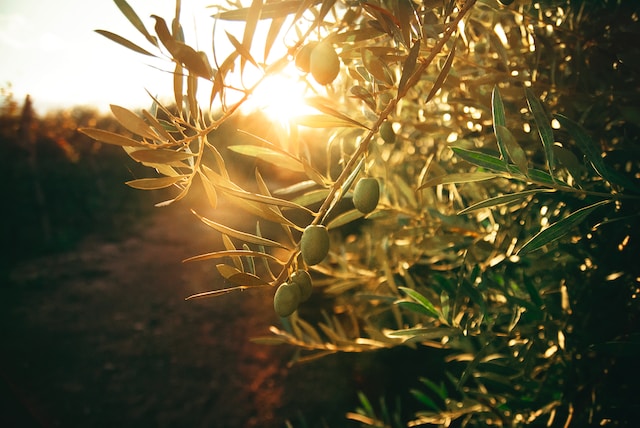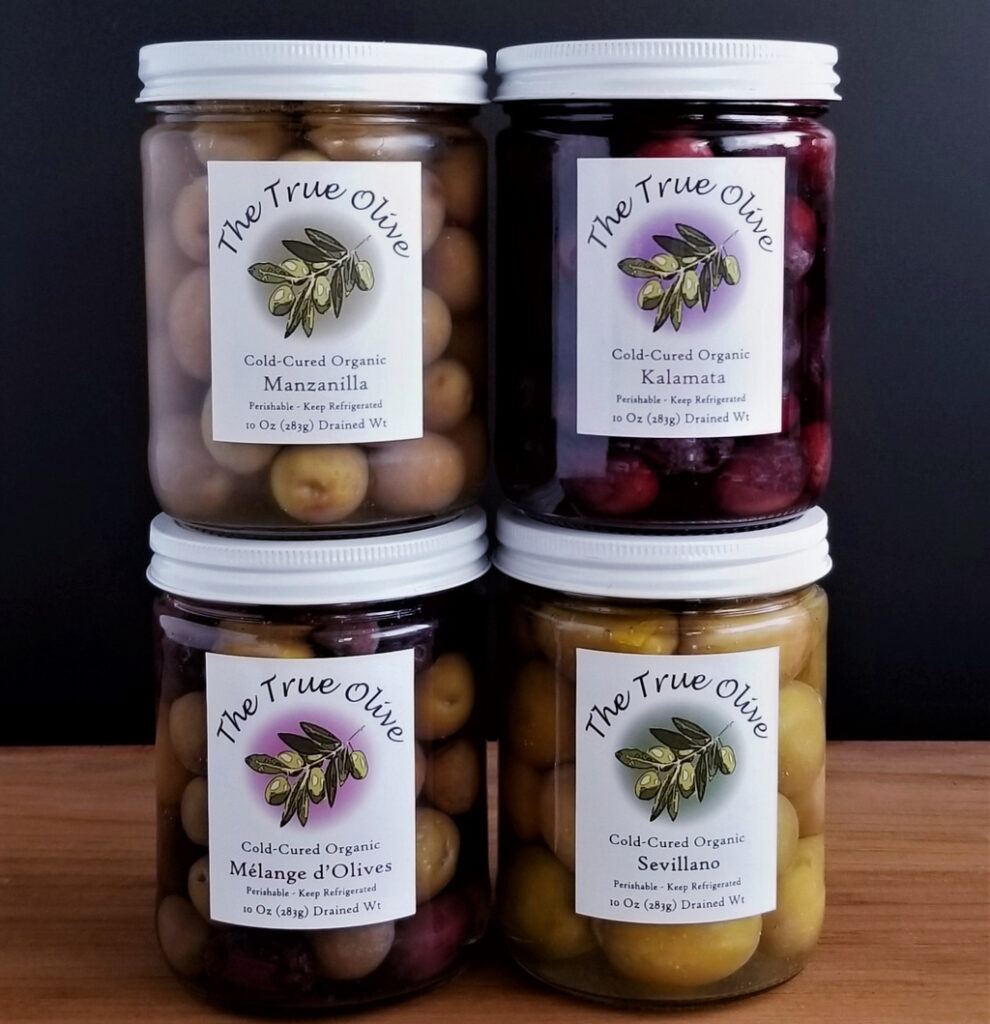Olives have been a celebrated part of Mediterranean cuisine for thousands of years. But the canned black olives most of us know and love are a far cry from the revered fruit of Old World dinner tables.
(Wait, are olives a fruit? Or are olives vegetables? Because they grow on trees and contain pits, olives are in fact, a variety of stone fruit).

Today, we use processed olives as a juicy topping, but historically, olives have been so much more than a condiment. The traditionally fermented fruit’s probiotics made it the digestive enzyme of its time, predating kimchi, yogurt, and sauerkraut. But unlike the Spanish-style green olives in glass jars, the California black olives you find on your pizza lack gut health-promoting probiotics. This is because U.S. companies do not ferment black olives.
How are black olives made?
In America, farmers pick ‘black’ olives while they are still green. Then, they chemically cook them with lye, an alkaline solution used in soap-making. Lye rapidly breaks down the plant cellulose in a process that’s similar to how Drano clears drain plugs. The olives then undergo pasteurization to make them a shelf-stable condiment.
Because the olives never get to ripen on the tree, processing facilities must turn them black using an iron compound called ferrous gluconate. Although doctors regularly prescribe this compound as an iron supplement for anemia, it can have negative effects on the stomach and be fatal to small children in large amounts.
When Todd Benson learned about the chemical-ridden journey olives make from tree to can, he stopped eating olives altogether. In 2008, he left his farmland in San Diego County to start growing his own olives in Flournoy, California.
Rethinking the American olive

Benson’s Good Faith Farm produces the only cold-cured olives available commercially in the United States. The farmers pick the organically-grown olives at varying levels of ripeness and barrel-ferment them for 6-18 months.
The True Olives grown at Good Faith Farm come in natural shades of green, purple, yellow, and gold. Unlike canned olives, these “Old World-style” olives do not undergo pasteurization, so you must keep them in the fridge.
For olives unlike any other, you can purchase Manzanilla olives, Kalamata olives, Cerignola olives, Nicoise olives, and Sevillano olive varieties in the Good Faith Farm shop. Choose from plain or specialty flavors like vinegar & thyme, Moroccan spice, garlic & oregano, or lime & jalapeno.